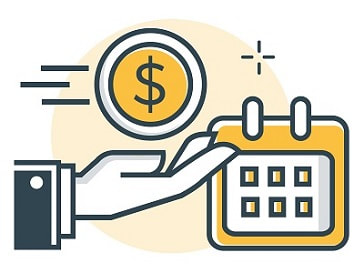New Zealand Superannuation Rates 2024 and 2025
Find out the current rates of New Zealand Superannuation (NZ Super) in seconds. Our table and guide outlines everything you need to know about receiving your fortnightly payment.
Updated 24 July 2024
Summary of NZ Super Rates
Beyond the rates listed below, our NZ Super Rates Guide covers:
Summary of NZ Super Rates
- If you're aged 65 and over and meet the qualifying criteria, you will receive up to $25,811.24 per year after tax.
- What you'll receive depends on whether you're single or living as part of a couple
- Your NZ Super payments won't be affected by how much income you and/or your partner have unless you and/or your partner receive an overseas pension
Beyond the rates listed below, our NZ Super Rates Guide covers:
NZ Super Rates for 1 April 2024 and up to 31 March 2025 For a Qualifying Individual Superannuant
Our table presents how much you'll receive below, depending on your situation. We assume the tax code 'M' but if you have S, SH, ST or SA you'll pay more, as outlined by Work and Income here.
Notes: Rates Valid from 1 April 2024 until 31 March 2025:
Notes: Rates Valid from 1 April 2024 until 31 March 2025:
Weekly Amount (gross/before tax) |
Fortnightly Amount (gross/before tax) |
Annual Amount (gross/before tax) |
Annual Amount (after tax, with total income up to $48,000 p.a. using tax code 'M') |
|
Single (living alone or with a dependent child) |
$606.67 |
$1,213.34 |
$31,546.84 |
$27,012.44 (or $519.47 weekly) |
Single (living with someone who is not a partner) |
$558.31 |
$1,116.62 |
$29,032.12 |
$24,934.52 (or $479.51 weekly) |
Couple - Both you and your partner meet the criteria for NZ Super |
$461.41 (each) |
$922.82 (each) |
$23,993.32 (each) |
$20,778.68 (or $399.59 weekly) |
Couple - Only one of you meets the criteria for NZ Super |
$461.41 (for the eligible person only) |
$922.82 (for the eligible person only) |
$23,993.32 (for the eligible person only) |
$20,778.68 (or $399.59 weekly, for the eligible person only) |
Historical Rates Valid from 1 April 2023 until 31 March 2024
Weekly Amount (gross/before tax) |
Fortnightly Amount (gross/before tax) |
Annual Amount (gross/before tax) |
||
Single (living alone or with a dependent child) |
$578.67 |
$1,157.34 |
$30,090.84 |
$25,864.55 (or $497.40 weekly) |
Single (living with someone who is not a partner) |
$532.43 |
$1,064.86 |
$27,686.36 |
$23,917.65 (or $459.95 weekly) |
Couple - Both you and your partner meet the criteria for NZ Super |
$439.79 (each) |
$879.58 (each) |
$22,869.08 (each) |
$19,497.09 (or $374.94 weekly) |
Couple -Only one of you meets the criteria for NZ Super |
$439.79 (for the eligible person only) |
$879.58 (for the eligible person only) |
$22,869.08 (for the eligible person only) |
$19,497.09 (or $374.94 weekly, for the eligible person only) |
Source: Work and Income Payment Rates
|
Are you interested in completing paid market research surveys?
We've identified three outstanding survey websites renowned for their reliability and consistent rewards for New Zealanders.
Why choose these platforms?
Know this: Signups take around 30 seconds to a couple of minutes, and the rewards offered are long-term, making them more attractive than one-off survey opportunities. Advertising Disclaimer - Our list is comprised of trusted and reliable companies that help New Zealanders to make money online. MoneyHub may be paid if you click or sign up to an offer, but this does not influence the ordering or reporting below. |
Christopher Walsh
MoneyHub Founder and Head of Research |
What is Superannuation?
NZ Superannuation is a retirement income for citizens who are at least 65 years old. It was created by the New Zealand Superannuation and Retirement Act of 2001 and provides retirees with supplemental income to cover life’s basics.
You can’t live on Superannuation alone, but it helps you cover the essential costs of living. When paired with other retirement funds, you can confidently retire.
How much will I receive in Superannuation payment?
How much Superannuation you receive depends on a few circumstances:
What is my tax code?
The IRD's tax code finder tool asks you a few questions and determines your tax code.
You can’t live on Superannuation alone, but it helps you cover the essential costs of living. When paired with other retirement funds, you can confidently retire.
How much will I receive in Superannuation payment?
How much Superannuation you receive depends on a few circumstances:
- Your marital status
- Your living situation (if you aren’t married)
- Whether or not you receive any overseas pension
- Your tax code
What is my tax code?
The IRD's tax code finder tool asks you a few questions and determines your tax code.
Qualifying and Applying for NZ Super
To qualify for NZ Superannuation, you must meet the following qualifications:
How to Apply
You can apply for Superannuation 12 weeks before your 65th birthday or if you’ve already turned 65. Once you contact Work and Income, you have 20 days to complete your Superannuation application. The procedure is as follows:
- Be at least 65 years old and
- Be a New Zealand citizen or permanent resident and
- Have lived in New Zealand for at least 10 years since the age of 20 and
- Have lived in New Zealand for at least 5 years since the age of 50
How to Apply
You can apply for Superannuation 12 weeks before your 65th birthday or if you’ve already turned 65. Once you contact Work and Income, you have 20 days to complete your Superannuation application. The procedure is as follows:
- You need a client number (you may already have one if you’ve dealt with Work and Income before). If not, complete the online form to get one.
- Register or log in to MyMSD - complete the application (you’ll need your banking information and details about you and your partner if you weren’t born in New Zealand)
- Follow the instructions provided after you apply, as you may need to provide more supporting documentation
- Sign your form and follow the instructions to send it back
NZ Super - Must-Know Steps to Ensure You Receive All Your Entitlements
Once you’re approved for Superannuation, Work & Income automatically sends you a SuperGold Card which provides access to discounts and offers from NZ businesses. From this date:
- You’ll receive payment from superannuation directly deposited into your bank account every two weeks.
- If you served in the war or other emergency situations in the armed forces, you might qualify for a Veteran’s Pension (which may be better than your Superannuation benefits). Work and Income's Veteran Pension guide has more details.
- You can still work and get NZ Super.
- You must report any changes to your living situation, personal details, or if you intend to live overseas.
- If you have a partner, you must also report any changes your partner makes personally or professionally.
NZ Super Frequently Asked Questions
Superannuation is usually straightforward, but questions do arise. Our summary of common queries below anticipates the most relevant questions you may have.
Can you collect NZ Super and work full-time?
Yes. There is no penalty for doing so, and many people over 65 continue to work part-time or full-time and receive their full Superannuation.
Does earning other income affect my total Superannuation payments?
No. Your superannuation payments always remain the same, but any additional income you earn (salary and wages, interest income, rental property income, overseas pension, and retirement fund money etc.) will be taxed at the appropriate rate.
When do you receive NZ Super payments?
NZ Super payments are made every second Tuesday. If the day falls on a public holiday, you’ll receive the payment sooner.
Is KiwiSaver the same as Superannuation?
No, KiwiSaver is money you save to supplement Superannuation. NZ Super only supports a frugal lifestyle, and most people cannot live off of it alone. Setting up and contributing to a KiwiSaver fund is an excellent way to ensure you have a plentiful retirement.
How much tax do you pay on NZ Superannuation?
- Your tax code depends on your income situation. If you only receive NZ Super, your tax code is ‘M’ if you have no student loans and ‘M SL’ if you have student loans.
- If you’re still working, you must determine if your NZ Super is more than your earned income. The larger income is your primary income. If NZ Super earns you more, you are in tax code ‘M.’ If your earnings are greater than your NZ Super, then you’ll be in a special tax code with tax rates between 17.5% and 33%.
- Our PAYE Calculator shows your after-tax income.




